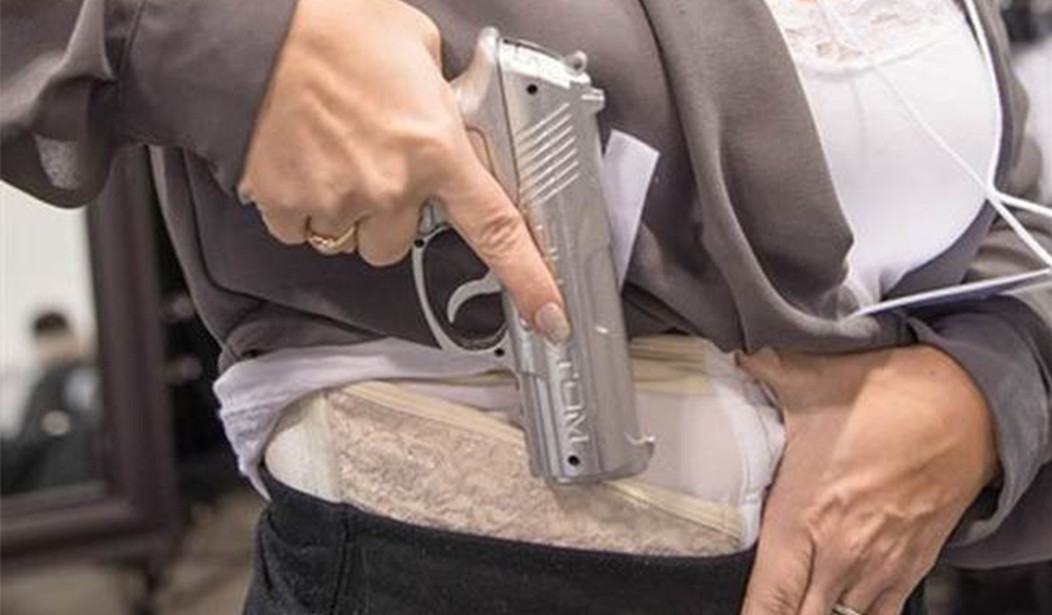The right to bear arms is the only constitutionally protected right that stops at the state line, but several cracks are starting to emerge in the walls built up by blue states around the country that are meant to keep non-residents from lawfully carrying. A few weeks ago we reported on New York City preemptively moving to allow non-residents to apply for a carry permit (though attorney Amy Bellantoni says she doesn't believe the city's police commissioner doesn't have the authority to issue the emergency rule changing the city's law).
Now there's word from the West Coast that non-residents may soon be able to apply for and receive a carry permit in California... though just like New York City's new rule for non-residents, it will still be an expensive and time-consuming process.
Second Amendment attorney Kostas Moros recently laid out the changes that have been agreed to by CalDOJ as part of the CRPA v. LASD lawsuit, which among other things challenged the complete and total prohibition on non-residents exercising their right to carry.
For starters, under the terms agreed to by CalDOJ and CRPA (which also have to be approved by the federal judge overseeing the litigation), any non-resident seeking a California carry permit must belong to the California Rifle & Pistol Association, Gun Owners of America, Gun Owners of California, or the Second Amendment Foundation. While I'm a big fan of all of these groups, it's decidedly strange to compel membership in a private organization before someone can exercise their civil rights. And that's just the first of several quirks in what could soon be California law.
The training requirement is perhaps the most complex part of the proposed order. California requires 16 hours of training including live fire qualification for first time applicants, and 8 hours for renewals.
— Kostas Moros (@MorosKostas) September 24, 2024
You can of course choose to come do your training in person. That's… pic.twitter.com/Obveno2or9
Why must someone plan to spend time in a particular jurisdiction before they can apply for a permit to carry there, and how will the state even begin to try and enforce that provision? Are they going to demand receipts documenting your travel to Los Angeles or San Francisco lest your carry permit be revoked?
The training requirements could also prove to be a challenge for gun owners. It's good that CalDOJ recognizes that forcing non-residents to travel to the state for their mandated training is completely unworkable in practice, but what happens if the licensing authority vetoes your local trainer of choice and can't come up with another alternative who teaches a California-compliant course within 75 miles of your home?
CalDOJ also wants every non-resident applicant to identify each and every handgun you to carry by submitting the make, model, and serial number to the licensing authority. That may also be required for California residents seeking to obtain a carry permit, but it still amounts to a gun registry for non-residents, which is likely to have a chilling effect on the number of non-residents applying for their permit.
Unfortunately, straight recognition of out-of-state permits was never on the table during the discussions between CRPA and CalDOJ. In her ruling granting a partial injunction, U.S. District Judge Sherilyn Peace Garnett refused to consider the arguments in favor of simple reciprocity raised by the plaintiffs, even though she did acknowledge that the inability of non-residents to carry violates their Fourteenth Amendment rights.
As onerous (and odious) as CalDOJ's terms are, the agreement reached between Attorney General Rob Bonta's office and the California Rifle & Pistol Association is still an improvement over the status quo. It's also not the end of the attempt by the group to make it easier for both residents and non-residents to exercise their fundamental right to bear arms. CRPA v. LASD is still in the early stages of litigation, and the push for right-to-carry reciprocity will continue as the case progresses to trial, along with the challenge to the exorbitant fees for processing carry applications imposed by some licensing authorities.
Judge Garnett's admission that people do have a right to carry beyond the borders of the state where they live was a significant victory for gun owners. If Garnett approves the agreement and the new policy is put in place, CRPA could demonstrate that even under the new rule non-residents are still being deprived of that right through lengthy delays in permit approvals or a lack of California-approved firearm instructors near their home, which might lead Garnett to revise the scope of her injunction. Even if she declines to do so, the plaintiffs can take their argument to the Ninth Circuit and potentially the Supreme Court as well.
The tentative agreement reached by CRPA and CalDOJ is just one step towards full recognition of our right to keep and bear arms. It's far from perfect, but that may actually work in our favor down the road as it becomes clear that, despite the proposed changes, California continues to treat the Second Amendment as a second-class right.










